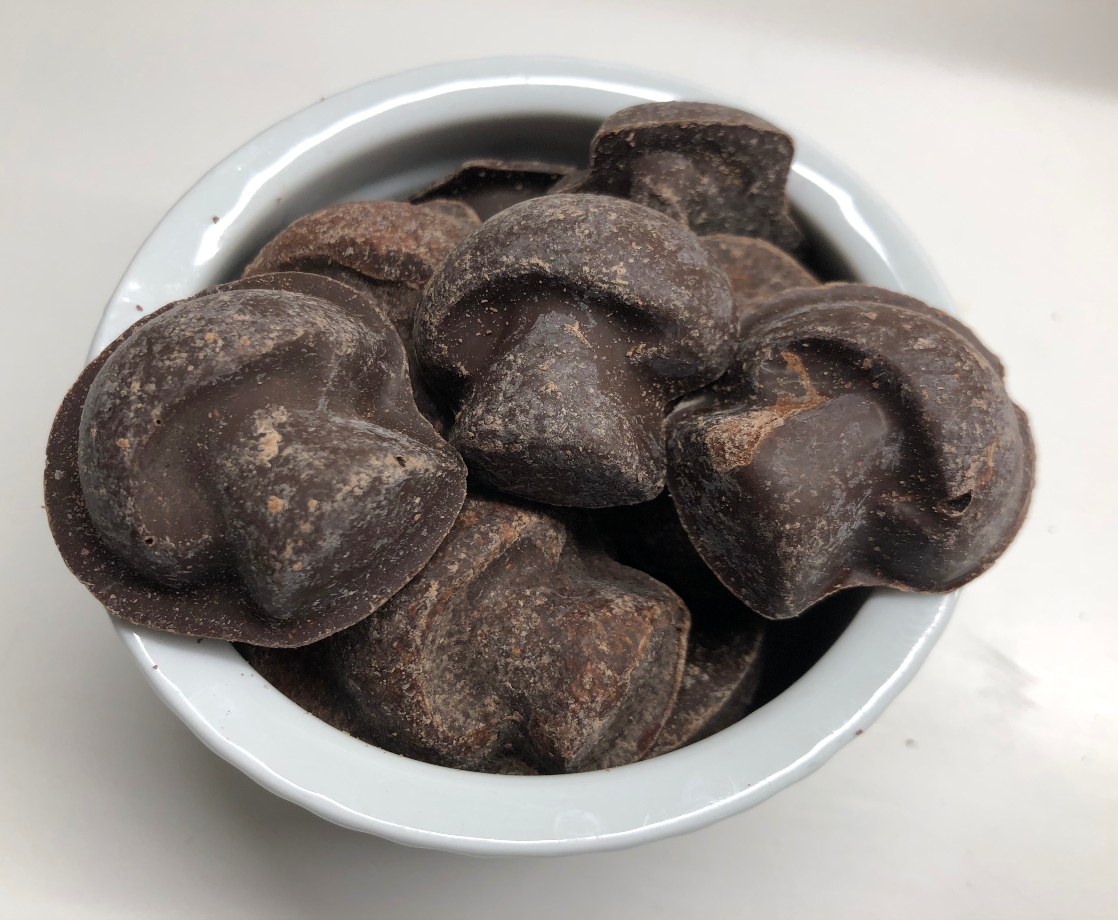Lead photo courtesy of Mohammad Gorjestani
As far as one-off curios go, you'd be hard-pressed to find an album that aspires to the conceptual and genre-mashing weirdness of Dr. Octagon's 1996 debut, Dr. Octagonecologyst. Sure, The Monks dressed in robes and gave themselves tonsure haircuts, but they played proto-punk: groundbreaking but not necessarily avant-garde. The Unicorns had the one self-referential song, but the rest of their album was a surprisingly sobering exploration of death. Madvillainy was certainly imaginative, but MF DOOM was hardly the first rapper to pose as a fictitious character. Kool Keith might have been a persona-swapping pioneer, though.
Dr. Octagon, a group that comprises Keith, superproducer Dan the Automator, and turntablist wizard DJ Q-Bert, is named after a depraved, homicidal, 3000 year-old gynecologist from Jupiter who may or may not be part shark and part alligator. Their debut (and, until last week, only) album was arguably the first sci-fi concept rap album, and definitely the first of those with a sonic backdrop that matched its MC's outré narrative.
The first time I heard Octagonecologyst, I was too young to know what a gynecologist was, but I was instantly captivated. Keith's vibrant, impenetrable rapping and Dan's kitchen sink production style, which roped in everything from soft-rock cheeseball Christopher Cross to eerie classical composer Bartók, were like nothing I'd ever heard. My love for Octagon led me to seek out DOOM, De La Soul Is Dead, Cannibal Ox, El-P, Lil B, The Avalanches, and anything else that featured either outer-space-addled rapping or seamless collisions of seemingly incompatible genres.
Octagon opened cans of worms for its creators, as well. When Octagonecologyst arrived, Keith's group Ultramagnetic MCs had just split up. The new release under the fresh moniker, however, led to the Bronx-born rapper becoming a cult icon, as well as marking the start of the most prolific phase of his 20-plus-year career. Soon, under the name Kool Keith, as well as Black Elvis and other noms de plume, he began releasing an exhausting run of records, ranging from sex-obsessed funk rap to further horror-themed character studies.
Dan the Automator was just getting his start in '96, fresh off of contributing engineering work to DJ Shadow's sample-based opus Endtroducing… Since Octagonecologyst, he's become a collaborative polymath, producing the majority of Gorillaz's first album, forming space-rap group Deltron 3030 with Del the Funky Homosapien, working with fellow production legend Prince Paul under the name Handsome Boy Modeling School, and producing rock bands from Jon Spencer Blues Explosion to Kasabian.
22 years after their debut, all three members of Dr. Octagon are back on board for an official follow-up, the ambitiously-titled Moosebumps: An Exploration Into Modern Day Horripilation (Note: in 2006, Keith released an album called The Return of Dr. Octagon, but neither of his original collaborators were involved). Typically confounding and engrossing, the new release retains the creative park of its predecessor while adding the live instrumentation and production chops with which Dan's become acquainted in his venerable career. MERRY JANE hopped on the phone with The Automator himself to discuss the long gap between Octagon albums, Octagonecologyst's legacy, and Keith's singular genius. Read our conversation below.
MERRY JANE: When did you guys first start thinking about making a true follow-up to Dr. Octagonecologyst?
Dan the Automator: A couple of years ago, I think it was probably 2015. Maybe '14. We made it a little while ago and then just had to figure out distribution and stuff like that.
What's responsible for the 20 year gap between the two Dr. Octagon albums?
Mainly Keith. You know, he's pretty much a free spirit. We've kept in touch and done songs together here and there over the years, but he was like, 'Let's do this for real.' And I was like, Okay, let's do it. Keith's a great a guy, it's just a matter of whether he was going to be focused in on doing it.
How long was the recording process?
Probably a week. Keith writes a lot, and when he wants to work, he works very, very hard. But it's a lot of stuff you have to put together. Basically with Keith, he flows out of the pen, just throws stuff in. You can't really fix Keith's rhymes, so if there's something wrong with it, it's just going to be wrong. If you try to fix it, it gets worse. So basically you just let him keep going and going until he gets into a groove. Sometimes it doesn't work, but we both have a good understanding of what we want, so it usually works out. There's a few — I wouldn't call them duds — but a few duds and non-sequiturs along the way, stuff like that. But once he opens up, he just floods it out. Sometimes it's great, sometimes it's not, and I just have to work through it.
So Keith's a big writer, then. No freestyling?
Nah, no freestyling. Sometimes the lyrics change as he's going. He writes everything, but as he rhymes it, sometimes it changes a little bit. He's got a really great sense of timing, so it all usually fits and flows together. When it doesn't work, it's not that he isn't flowing well, but that some word is out of place or something. I might change a chorus or write a chorus, but I've learned not to mess with the [verses'] lines at all.

Photo courtesy of Mohammad Gorjestani
Can you explain what happened with The Return of Dr. Octagon and why you weren't involved with it?
Keith does have a plethora of solo records, and this guy, I don't remember his name, decided he was gonna make one of them an Octagon record. There were no rights to it or anything, but I'm not gonna stop Keith from making his money. But this guy even called me up like, 'Hey could you mix this?' And I was like, No, get the fuck out of here.
But that didn't create any tension between you and Keith?
Honestly man, I didn't even know if we were going to do another record, but I'm not gonna stop someone from doing their hustle. Obviously, I don't want anymore fake Octagon records to happen, but at the time we didn't think we were going to do anything else together, and if someone's gonna pay Keith, I'm not going to stop them, you know?
Was the Dr. Octagon concept something that Keith initially came up with on his own?
Yeah, it all started with him sending me two [Octagon] songs. At the time, I was working with him a little bit. I was mixing this record for him, but it wasn't going very well. The record wasn't gonna come out. He had done these couple demos, the Dr. Octagon songs, and he was like, 'You think you could do something with this?' I did, so we decided to do it. This is after we'd already had a relationship for a few years, but that's how it all started.
What was your first impression of the character and concept?
Well, you take a spaced-out porn doctor and you extrapolate it and run with it. I guess that's the best way to put it. I had just finished doing a bunch of stuff with DJ Shadow and Blackalicious in [Northern California rap collective] Solesides, around the time of Endtroducing… and all that stuff. Basically, I had certain feelings about rap music at the time, where I felt like it was getting — stale isn't the right word. But you know, on the East Coast everything's one way, on the West Coast everything's one way. When James Brown's hot everyone's [sampling] James Brown, when jazz is hot, like with Tribe, everyone's on jazz loops — that kind of thing. All that stuff is cool, I'm not really opposed to any of those things. In fact, I like all those things.
I just felt like rap was creating its own box, so I thought if I was gonna go do [Octagon], it would have to shake things up. That's what the whole thing is, me taking it and saying, Well, it doesn't have to be a jazz loop, it can be anything. I mean, we even did a song that was a freaked-out country beat. That song was pretty bad and it didn't make the record, but the idea was that there should be no boundaries, you know.
The interesting thing about Octagonecologyst that I didn't recognize at first was that there's a lot of synthesizer work. I realized that songs like "Earth People" and "3000" are just me playing the keyboard. I'm not saying I'm Tangerine Dream or something — I'm definitely not — but it's interesting how hard I went into the synths. When we started playing Octagon shows this year, I had to take some of the multitracks apart and start seeing what instruments I was gonna use, and I was like, Wow, this is way more of a synth record than I had originally remembered it being.
Yeah, but even if you're not Tangerine Dream, you still hear that deep synth sound on a lot of underground rap albums that followed.
It's funny because I did do it with the sense of, I'm gonna do whatever it is and anything, but I guess I didn't realize I really did whatever and anything on certain tracks. So it was cool to go back into it and reexamine the tracks. I think it aged well, in the sense that I can still listen to it today. Some of the mixes don't hit quite as hard as they would if I did them today, but in general, creatively, it's close to what I would do now, with the exception of 20 years spent producing bands and having better acquaintances with mixing guitar, drums, whatever — you know, all the things I've learned over that time. Other than that, I'd stand by it in terms of what it is. It's funny, I feel the same about Endtroducing… because we also did that with like, no equipment. I hear it now, and I'm like, You know what? That's kind of how it should be.
So with the first Octagon record, you're saying the main goal was to break out of that staleness and do whatever the fuck you wanted?
I would say that had a lot to do with it, yeah. But also, at the time — this was when Ultramagnetic MCs had run their arc, and I was a big fan of them, because once again, Keith is just such a great lyricist. I wanted to have some of, not what Ultra had, but something that highlighted Keith's pure technical skills. On the underside, Octagonecologyst is very much a skills record, but it's not a skills record for skills' sake. I wasn't trying to make people understand Keith, because I didn't really care — that wasn't the point. The goal was just to make it the best. With every record I do, it's that thing where like, You know what? You don't have to like my record, I don't care. What I mean by that is I did my best, if you don't like it, that's cool, whatever.
What was the biggest difference between making Octagonecologyst and Moosebumps?
There's two major ones. One is, the first Octagon [album] is an adventure. It can go anywhere because it never existed. The second Octagon has to be self-aware because the first one existed. So [on Moosebumps] there are certain things that are Octagon-like, whereas on the first one there's nothing that's Octagon-like. It just goes.
The other thing is we don't use samples anymore. It's all players, besides a few drum samples. I've produced a lot of records over the years, so I know more than I did back then, but it's a double-edged sword. Octagonecologyst was a nice sweet spot where I was pretty good at what I was doing, but I also had some naiveté in there. Now I know what I'm doing so the naiveté doesn't happen the same way. Say, for example, a song like "I'm Destructive" from the first album. I'm like, Ah this is great, something punk. But I didn't know how to record dark guitar amps at the time. It was experimental, I guess. When I listen to that now, I'm pretty happy because it's punk and punk is kind of experimental. But the guitar, you know, it's maybe thinner than what I would do today, or whatever. Whereas now we do a song with heavy guitar so I call the guy from Slayer, and he plays on it. It's different, you know.
Oh, that's who's playing on "Karma Sutra"?
Yeah, that's Gary Holt from Slayer. He's my friend, I've known him a long time. My rolodex is a little bigger now — that's a plus — but we mostly did this record ourselves. In terms of outside people, there's only a couple guests. Gary's on there, Del [the Funkee Homosapien] is on there, and [Interpol's] Paul Banks is on there. I wanted to keep it Octagon.
What's the biggest difference between making an album with Keith and making an album with Del the Funky Homosapien?
I've gotta rethink Keith a little, because in a lot of ways, I was always thinking he was closer to stream-of-consciousness. I got to hang out a little bit with his brother on the last run of shows, and he was telling me a lot of stories. That was cool, learning about Keith in his youth. But what was more interesting was learning that some of the stuff Keith rhymes about has direct correlation to these stories. It's not as freeform, stream-of-consciousness as I originally thought. There's a lot more reality or specific plot points than I had originally given credence to.
You know, he'll say something that's really about his childhood basketball league, but then he'll throw in a moose or something, and then you'll be like, Wait, this is all just wild. But it's not really. If you get the reference points, you'll see that it's two trains of thought combining to make one cognizant thought, at least if you understand where the original story comes from. At first I thought it was Keith leaving out a point, like he'd go from Point A to Point C, leaving out Point B as if it was assumed it was known, so it'd seem like it was a non-sequitur. But now I'm understanding more that it's actually a combination of a plot point and fantasy, but they're being tied together. That's what it really is, if that makes any sense.
Yeah, you gain understanding the more you listen to Keith. I can't imagine knowing exactly what he means, but you learn his language as you spend more time with his music.
Exactly. Once I talked to his brother, I filled in a few blanks, not even a ton, but it was like, Oh, I get this. This is what he's talking about. For the most part I have a generally decent idea of what he's talking about, but when I realize that he's mixing in certain details from his past, I'm like, Oh shit, I know exactly what he's talking about. It's not so random. It's intricate in a different kind of way, combined with a little bit of fantasy. It's a very potent thing, and it's probably why, like I said, editing his vocals doesn't work. If you try to tie it together a little more, it loses its charm and its point.

Dr. Octagonecologyst and Deltron 3030 are two of the biggest, earliest, most influential sci-fi concept rap albums ever. Were you always a big sci-fi guy or did those ideas mostly stem from Keith and Del?
I'm not a big sci-fi guy, but I'm not not a big sci-fi guy. Meaning, I keep track of it all, follow the bits, you know. Del reads comics and plays video games, so I know he's into all of that. With Keith, I think it's just his imagination. As I've grown, I understand it better, not sci-fi itself, but what I'm personally doing. I think it really reared its head on the second Deltron record, where I realized how the actual technique of sci-fi can be incorporated into rap, more than just the story.
I realized with sci-fi, you can really do a lot of political commentary on the present through the future, and that's what the genre does in general. That's one of its core premises. But in record form, I got really liberated by the idea of making a political record through the lens of sci-fi. That's what Event II is, from front to back. That's me understanding sci-fi the genre better, rather than just the tropes and the vibe. It's the same with superhero comic books — it's all just social commentary of one sort or another. And that's what's made it great to be a part of two futuristic, sci-fi endeavors — the ability to really cover some [meaty] subject matter.
The social commentary definitely seems more commonplace on the Deltron albums, but I got a bit of it from Keith in a few places on Moosebumps.
It's more Keith's imagination, in my opinion. But like I said, he has a point — more of a point than you'd expect. Whereas with Del, we actually sit down and write a plot — not a plot for the record, but one for what's going on, and how the world is, and parts of the world we want to talk about. If you listen to Event II carefully, it's pretty thick. With Octagon's it's more… you know, he's a 3000-year-old shark-alligator-man gynecologist kind of guy, so it's a little different.
Buy "Moosebumps: An Exploration Into Modern Day Horripilation" from Dr. Octagon's official website.
Follow Patrick Lyons on Twitter.











